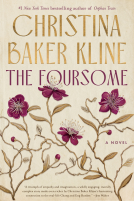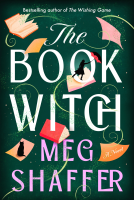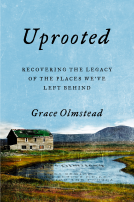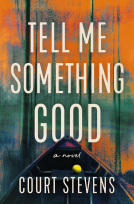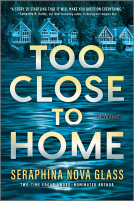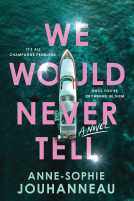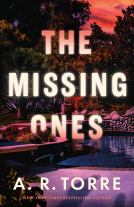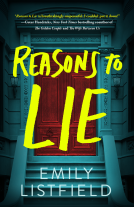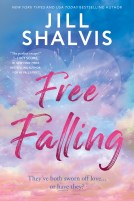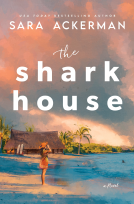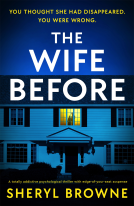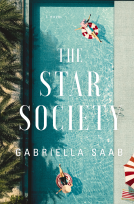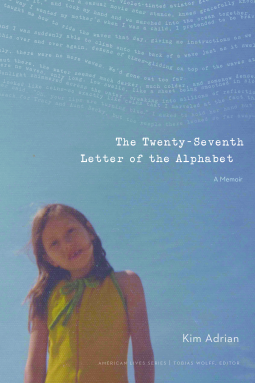
The Twenty-Seventh Letter of the Alphabet
A Memoir
by Kim Adrian
This title was previously available on NetGalley and is now archived.
Send NetGalley books directly to your Kindle or Kindle app
1
To read on a Kindle or Kindle app, please add kindle@netgalley.com as an approved email address to receive files in your Amazon account. Click here for step-by-step instructions.
2
Also find your Kindle email address within your Amazon account, and enter it here.
Pub Date Oct 01 2018 | Archive Date Oct 31 2018
Talking about this book? Use #TheTwentyseventhLetterOfTheAlphabet #NetGalley. More hashtag tips!
Description
In The Twenty-Seventh Letter of the Alphabet Adrian tries to make peace with this troubled past by cataloguing memories, anecdotes, and bits of family lore in the form of a glossary. But within this strategic reckoning of the past, the unruly present carves an unpredictable path as Adrian’s aging mother plunges into ever-deeper realms of drug-fueled paranoia. Ultimately, the glossary’s imposed order serves less to organize emotional chaos than to expose difficult but necessary truths, such as the fact that some problems simply can’t be solved, and that loving someone doesn’t necessarily mean saving them.
Advance Praise
“A stunning merger of form and content; a remarkable portrait-becomes-self-portrait; and something like a master class in complicity.”—David Shields, author of Reality Hunger
“The Twenty-Seventh Letter of the Alphabet is a revelation. By structuring the book in the unconventional form of a glossary, Kim Adrian allows the reader into the very intimate mechanics of her memory. Each page I read pulled me deeper under the book’s peculiar spell. Through Adrian’s rigorous attention to detail I found myself involuntarily drawn into her perspective, both as a child and a grown woman, hungry to make sense of this troubled family and this vibrantly unstable mother.”—Alysia Abbott, author of Fairyland: A Memoir of My Father
“A vivid, vibrant glossary of a life. Adrian’s sharp prose and unique form combine to illustrate how powerfully our childhoods reverberate throughout our lives.”—Dinty W. Moore, author of Between Panic and Desire
“This is desperately serious work, an exacting memoir that excavates, with compassion for all involved, the harrowingly repetitive patterns of abuse as well as moments of something like hope, crushable and delicate, thwarted, and yet renewable. An agonized, beautiful, unflinching account.” —Lee Upton, author of Visitations: Stories
“Kim Adrian’s The Twenty-Seventh Letter of the Alphabet is an intimate portrait of the chaos and confusion of her mother’s mental illness. It’s also a deep meditation on storytelling itself—our desire to impose order, discover meaning, heal what is broken in us, and find a way to live with what can’t be fixed. Innovative in form and comprised of razor-sharp vignettes, Adrian summons a rare, hard-won compassion for both her mother and herself.”—Steve Edwards, author of Breaking into the Backcountry
“Out of a fragmented, deeply moving, and dazzling narrative, the author pieces together [a] hard-won love, made possible by her refusal to give up. Many books are described as ‘brave’—this one really is.”—Sue William Silverman, author of The Pat Boone Fan Club: My Life as a White Anglo-Saxon Jew
“The Twenty-Seventh Letter of the Alphabet astonishes from ‘A’ all the way to the end. Funny, sad, unassuming, wise—exquisitely written—it will make you laugh, cry, wonder, and hope. You (and your vocabulary) will be the better for reading this beautiful book.”—Dinah Lenney, author of The Object Parade
“Kim Adrian’s portrait of her mother—a woman who inflicts considerable damage, having had plenty done to her—is darkly comic, probing, and full of compassion. This memoir unfolds in the startling form of a glossary: an A-to-Z of key words that have shaped Adrian’s coming-to-terms with family and its mysteries. The Twenty-Seventh Letter of the Alphabet is altogether remarkable.”—Martha Cooley, author of Guesswork: A Reckoning With Loss
“Adrian has written the logical, not chronological, order of her family’s treasures and many more skeletons. These snippets, snapshots and sequences are the ABCs of answering those age-old family questions—who are we and what have we become? Telling her own story and her mentally ill mother’s, she uses compassion, humor, missteps, abuse, heartrending love, and the alphabet to compose redemption’s glossary.”—Amy Wallen, author of When We Were Ghouls
Available Editions
| EDITION | Other Format |
| ISBN | 9781496201973 |
| PRICE | $19.95 (USD) |
| PAGES | 312 |
Average rating from 12 members
Featured Reviews
 Educator 250756
Educator 250756
Having lived in similar circumstances, i latched onto this book right away.
And i love the concept of the book, though it will seem disjointed to some. But that scatter-shot construction accurately reflects what it's like to live under such circumstances. Living with a mentally-ill loved one is a mosaic of splinters of memory, both good and bad. Those memories are not linear;they come in fragments and we never know what will trigger them. Adrian uses the concept of language to shape the memories in her important book, and it is accurate, effective, and emotionally wrenching.
This is a book i will return to periodically.
I received an ARC from NetGalley in exchange for an honest review
 Andrea L, Reviewer
Andrea L, Reviewer
I'm a memoir addict and when the content focuses on dysfunctional families, even better! This book did not disappoint! The only thing I didn't like was the disjointed style of small blurbs relating to particular words of any given alphabet letter. It made it hard to follow at times and would have been better in essay style. I would still recommend this one though. 👍🏼👍🏼
I thouroughy enjoyed reading this raw look into the authors family.
In the beginning of the book the writing & sequence of events in the book comes across confusing & out of place. As you keep reading & become intrawled into the family life, this style of writing is pure genius. It adds to the story, it makes sense & makes this book uniquely stand out.
I appreciated the author's honesty & head on approach to some of the more uncomfortable topics in her memoir.
 Tracy D, Reviewer
Tracy D, Reviewer
Kim Adrian captures the essence of “show, don’t tell” with her memoir of growing up (and being grown) with a mentally I’ll mother and abusive father. There were some very powerful scenes in this book. But, in spite of her powerful observations and writing, the organization of this book felt contrived and the overall story lacked the essential beginning, middle and end. Some of the memories were directly prompted by looking at pictures, which might have worked if (1) all of the memories were based on pictures and (2) there was an overarching narrative flow, but neither were true here.
 Bookseller 264981
Bookseller 264981
I really enjoyed this book. The format was unique and intriguing. I would've like a little more information about her mother transitioning to life outside the last hospitalization, but overall it was a very good read.
Adrian's book is unconventional in both style and content. The order is all jumbled together with no chronological continuity.. It's based on word alphabetized that is followed with a short vignettes from her life, mainly dealing with her parents. Most of her segments involve her mother. Adrian grew up in a violent, alcoholic environment, which was her father, and a mentally ill amd abusive mother. The content was sad and hard to read. The author often refers to pictures, but none are included, which is distracting. Ultimately, Adrian has forged a stable family life of her own and manages to have a pseudo relationship with her mother, even if it is only through text.
The Twenty-Seventh Letter of the Alphabet reads a little messy, but that’s exactly what loving someone with a mental illness feels like. The curiosity will keep you on this rollercoaster, you’ll certainly want to get off, but you’ll insist on holding on to see exactly what that 27th letter could possibly be. I can’t decide if this memoir is brave or if it’s a complete betrayal of a mother/daughter relationship. Either way, if you find yourself at ropes end loving someone with mental issues, this read will certainly make you feel less alone.
 Reviewer 345619
Reviewer 345619
This book is hard to follow. At times it is confusing. The book is written how Kim lived her life. Growing up with an alcoholic father and mentally ill mother, must have been confusing and erratic. The book totally portrays what Kim and her sister went through. This is not for the faint of heart. Reading it may be depressing and sad. Reading it shines a light on mental illness, which certainly needs to be done. I am so sorry that the author had to go through this, but I deeply appreciate her sharing her story.
Readers who liked this book also liked:
Anne-Sophie Jouhanneau
General Fiction (Adult), Mystery & Thrillers, Women's Fiction
